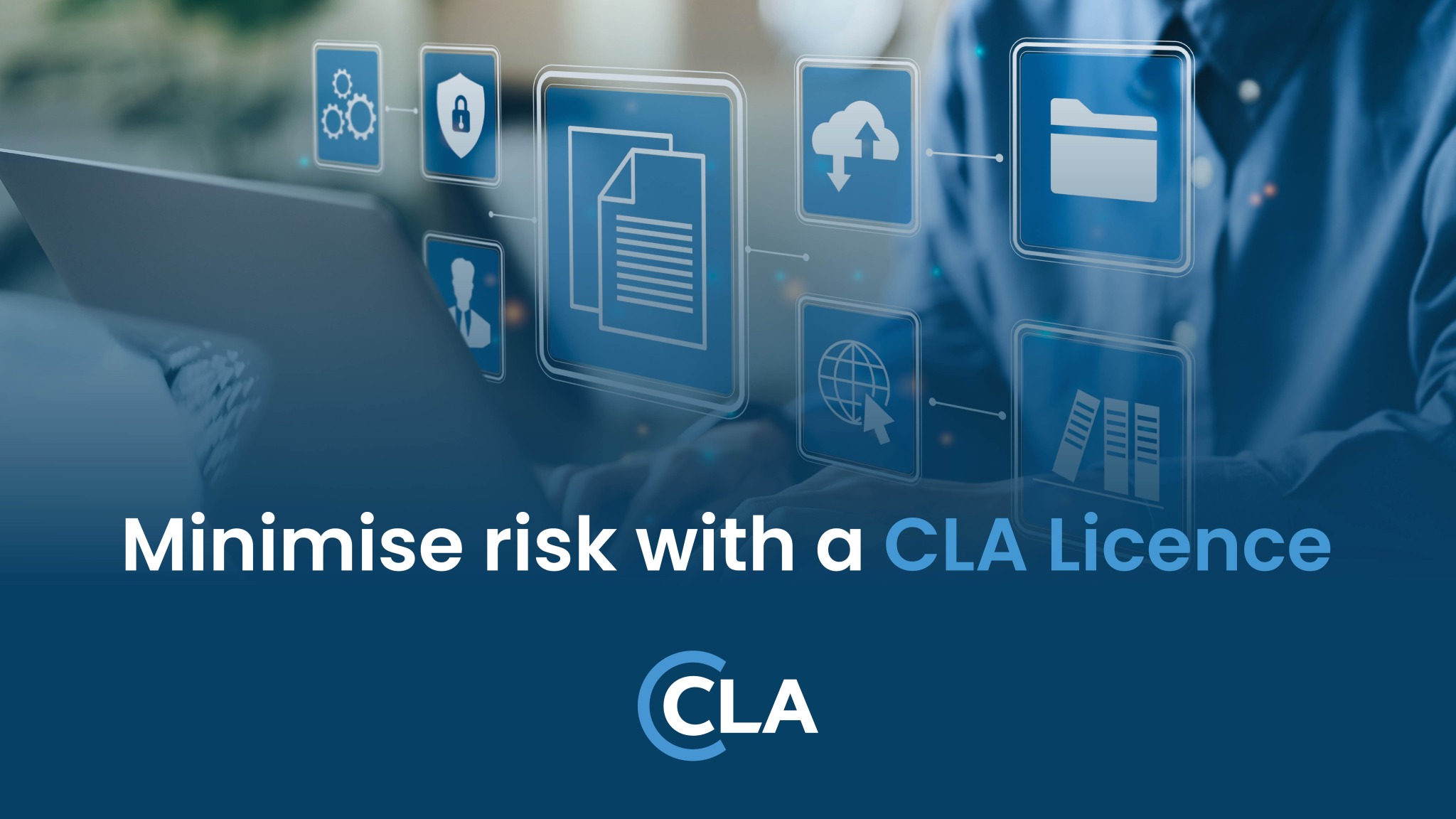It’s easier than ever to utilise content in today’s digital-first environment. While this is positive for collaboration and growth, it poses an increased challenge for Local Authorities that want to stay on the right side of copyright law. Mitigating risk and avoiding inadvertent infringement is paramount for governmental bodies that have a societal expectation to ‘do the right thing’, and practice responsible business, particularly around matters of the law.
How are UK professionals using content?
Common actions such as copy and pasting, screenshotting, uploading to an intranet, and sharing media clippings pose infringement risks. A UK professionals’ survey by The Copyright Licensing Agency (CLA) revealed that, on average, individuals use four information sources in the course of their work (such as journals, websites, books, and news media), with 74% relying heavily on digital content. The undeniable attraction to copy and paste digital content is evident, with 48% admitting to this practice.
While this is a fantastic way to leverage quality content and share information, it carries the risk of unintentional copyright infringement by employees, potentially exposing organisations to reputational and financial risks.
How can Local Authorities mitigate infringement risk?
CLA, a not-for-profit government-regulated CMO, licences 700+ Public Sector organisations across the UK. The CLA Licence permits organisations to copy work from millions of publications under a single ‘blanket’ copyright licence. It streamlines and simplifies the compliance process, assisting organisations in responsibly navigating copyright law in an effective and efficient way.
Alternatively, organisations can seek and pay for individual copyright permissions every time an employee wishes to reuse content from digital, online or print sources. This can, of course, be hugely time consuming. It also relies on a robust copyright policy that employees can understand and adhere to. It also requires organisations to be fully aware of the content being used by employees, including when working remotely. In the survey of UK professionals commissioned by CLA, 40% of respondents claimed to have a high-level of confidence that they understand best practices to reduce the risk of infringing copyright. That suggests 60% of the work force are less sure of best practices and recognise that they may be at risk of copyright infringement.
Violation of copyright law is an undesirable scenario for any governmental body. Historically, some Local Authorities have faced challenges due to their copying practices without the necessary permissions. Effective risk mitigation should be a consideration for Local Authorities engaged in sharing and collaboration.
Insights from an expert
CLA’s Public Sector Licensing Manager, Daniel Elsey, has been licensing Local Authorities, public bodies, and government departments for over 17 years. He often comes across the same questions and misconceptions surrounding copyright in the workplace. The belief that paid subscriptions provide open copying permissions, is one. Daniel elaborates:
“While subscriptions grant you access to content, there’s a crucial distinction between accessing and having the right to copy and share that content. Most publications have explicit copyright statements prohibiting copying, storing, or sharing.
In Local Authorities, commonly subscribed titles will have copyright disclaimers. People can be surprised to learn that subscribing to a service doesn’t always give you free rein to reuse its content. This is an example of where a CLA Licence adds great value to organisations who promote collaboration.“
The circulation of press clippings, Daniel explains, is another action that can lead to infringement.
“Thousands of UK organisations, including Local Authorities, use media monitoring providers to access media coverage. There are limitations set in the agreement between CLA and these Media Monitoring agencies. Specifically, it only permits one recipient in the organisation to receive the coverage, and it restricts further sharing, saving, and copying of received media coverage. This further circulation or saving can lead to infringement when done without the required permissions.”
Supporting the creative industry
Copyright compliance is not just a legal obligation, but an ethical one. Respecting the rights of creators and ensuring fair remuneration for the use of their work is a moral responsibility.
The revenue from CLA Licences is redistributed, via its members back to authors, visual artists and publishers. The income received in return for the copying of their work is an important income for creators, and non-compliance denies them this remuneration. Responsible copying practices support the creative ecosystem, ensuring quality content creation can continue.
Act responsibly. Protect your organisation. Support creatives. Copy, Right.
"Mitigating risk and avoiding inadvertent infringement is paramount for governmental bodies that have a societal expectation to ‘do the right thing’, and practice responsible business, particularly around matters of the law."
Licence enquiries
If you’d like to enquire about a new licence, you can use the form via the form below. Alternatively, you can contact our team on 0204 5120096 or licence@cla.co.uk
Enter your details below and one of our team will get back to you.
"*" indicates required fields
If you have further questions or require additional information on our Public Administration Licence, our team are here to help. Existing licence holders can contact our Customer Success team on 020 7400 3171 or cs@cla.co.uk
Whether you’re seeking clarification on licence use or want to discuss licence options, we look forward to hearing from you.



